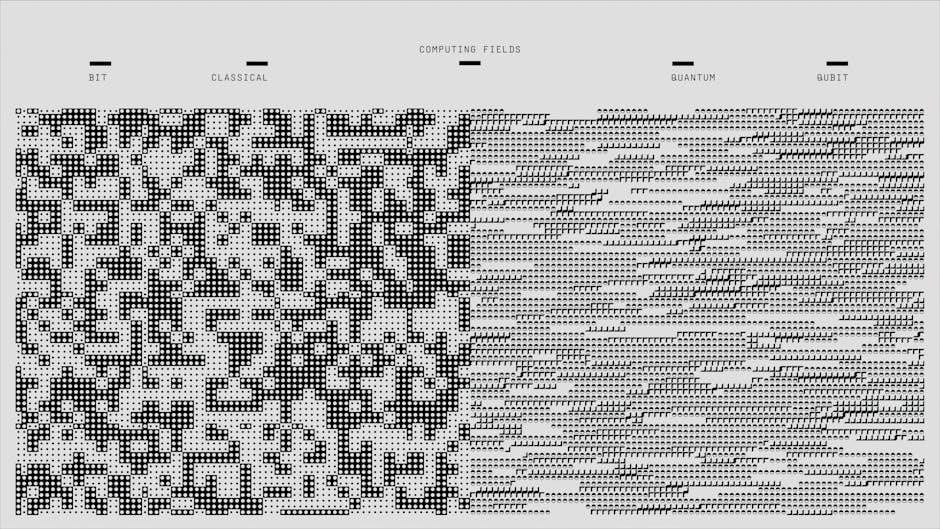The Quebec Electrical Code 2018 ensures safety and compliance for electrical installations, aligning with Canadian standards. It’s available as a free PDF, essential for professionals and homeowners alike.
1.1 Overview of the Code
The Quebec Electrical Code 2018 is a comprehensive guide regulating electrical installations in Quebec. It ensures safety, efficiency, and compliance with Canadian standards while addressing provincial specifics. The code is divided into sections covering residential, commercial, and industrial installations, providing detailed requirements for wiring, circuits, and safety measures. It serves as a critical reference for electricians, contractors, and homeowners, offering free access in PDF format. The document outlines clear guidelines for electrical work, ensuring the protection of people and property from hazards. Its structure is designed to be user-friendly, with sections organized to facilitate easy navigation and understanding. This code is essential for anyone involved in electrical projects in Quebec, promoting adherence to best practices and legal standards.
1.2 Importance of the Code in Quebec
The Quebec Electrical Code 2018 is crucial for ensuring safety and compliance in electrical installations across the province. It protects people and property by setting clear standards for electrical systems, preventing hazards like fires and shocks. The code aligns with Canadian norms while addressing Quebec-specific needs, making it a vital resource for professionals and homeowners. Its free availability in PDF format ensures widespread access, promoting adherence to legal and safety requirements. By following the code, individuals and businesses can avoid legal penalties and ensure their electrical systems are up to date. This document is indispensable for maintaining electrical safety and integrity in Quebec.
1.3 Key Updates in the 2018 Edition
The 2018 edition of the Quebec Electrical Code introduces significant updates to enhance safety and adapt to technological advancements. New requirements for residential, commercial, and industrial installations ensure compliance with modern electrical systems. Updates include improved standards for arc fault protection, grounding systems, and renewable energy integration. The code now aligns more closely with Canadian electrical standards while addressing specific provincial needs. Additionally, the 2018 version includes clearer guidelines for electric vehicle charging stations and energy-efficient technologies. These updates reflect the evolving electrical landscape and ensure safer, more reliable installations across Quebec. The revised code is essential for professionals to stay compliant and for homeowners to understand safety requirements.

Structure of the Quebec Electrical Code
The code is organized into clear sections, covering residential, commercial, and industrial installations, with detailed safety standards and regulations for easy navigation and compliance.
2;1 Organization of the Document
The Quebec Electrical Code 2018 is structured into distinct sections, each focusing on specific aspects of electrical installations. The document begins with an overview, followed by detailed chapters on residential, commercial, and industrial requirements. Safety standards and regulations are prominently featured, ensuring clarity and accessibility. The code is further divided into subsections, addressing topics like wiring, circuit requirements, and safety measures. This logical organization allows users to quickly locate relevant information, making it an essential resource for both professionals and homeowners. The clear headings and systematic approach facilitate compliance with provincial and national electrical standards, ensuring safety and efficiency in all applications.
2.2 Main Sections and Chapters
The Quebec Electrical Code 2018 is divided into several key sections, each addressing specific aspects of electrical installations. The document begins with an introduction, followed by sections dedicated to residential, commercial, and industrial electrical systems. These chapters provide detailed requirements for wiring, circuit design, and safety measures. Additional sections cover safety standards, regulations, and compliance guidelines, ensuring comprehensive coverage of electrical work. The code also includes appendices with supplementary information, such as diagrams and examples, to aid in understanding and implementation. This structured approach ensures that all aspects of electrical installations are addressed, making it an indispensable resource for professionals and homeowners alike. The clear division of content helps users navigate the document efficiently.
2.3 How to Navigate the Code
Navigating the Quebec Electrical Code 2018 is straightforward due to its clear structure and organization. The document begins with a table of contents that outlines each section and subsection, allowing users to quickly locate specific topics. The code is divided into numbered sections and subsections, with clear headings that indicate the subject matter. Indexes and cross-references are also provided to help users find related information easily. The use of bullet points, diagrams, and tables enhances readability and makes complex information more accessible. By familiarizing oneself with the table of contents and using the search function in the PDF version, users can efficiently navigate the code. This ensures compliance with safety standards and regulations for electrical installations in Quebec.

Key Sections of the Code
The Quebec Electrical Code 2018 includes sections on residential, commercial, and industrial installations, safety standards, and specific regulations for electrical systems, ensuring comprehensive compliance and safety.
3.1 Residential Electrical Installations
The Quebec Electrical Code 2018 provides detailed guidelines for residential electrical installations, ensuring safety and compliance. It covers requirements for wiring, circuit breakers, and grounding systems. Homeowners can perform minor tasks like changing light bulbs or replacing fuses, but more complex work requires a licensed electrician. The code specifies materials and techniques to prevent hazards, ensuring reliable electrical systems. It also addresses energy efficiency and renewable energy integration, reflecting modern needs. By adhering to these standards, homeowners can maintain safe and functional electrical systems, avoiding potential risks and legal issues. The code serves as a vital reference for both professionals and residents, promoting safety and adherence to provincial regulations.
3.2 Commercial and Industrial Electrical Installations
The Quebec Electrical Code 2018 provides comprehensive guidelines for commercial and industrial installations, ensuring safety and efficiency. It addresses high-power systems, specialized equipment, and complex wiring configurations. The code emphasizes proper grounding, insulation, and circuit protection to prevent hazards in large facilities. Requirements for electrical rooms, transformers, and distribution panels are detailed to ensure reliable operations. Compliance with these standards is crucial for businesses to avoid downtime and legal issues. The code aligns with Canadian norms while adapting to Quebec’s specific needs, ensuring consistency and safety across all sectors. Regular updates reflect advancements in technology and safety practices, making it a critical resource for professionals in commercial and industrial settings.
3.3 Safety Standards and Regulations
The Quebec Electrical Code 2018 outlines stringent safety standards to minimize risks in electrical systems. It specifies requirements for proper insulation, grounding, and circuit protection to prevent shocks and fires. The code mandates regular inspections and testing of electrical components to ensure compliance. Safety regulations cover arc fault protection, surge protection, and emergency systems. Guidelines for working with hazardous materials and environments are also included. These standards are designed to protect both people and property, ensuring reliable and safe electrical installations. By adhering to these regulations, professionals can prevent accidents and meet legal requirements. The code is regularly updated to incorporate new safety technologies and best practices, making it a cornerstone of electrical safety in Quebec.

Accessing the Code
The Quebec Electrical Code 2018 is accessible online for free through official sources, ensuring easy access to the essential document for professionals and homeowners.
4.1 Where to Find the Code Online
The Quebec Electrical Code 2018 can be easily found online through the official website of the Régie du bâtiment du Québec (RBQ). Additionally, it is available on reputable platforms such as the CSA Group website, which provides free access to the document. Users can search for “Code Électrique du Québec 2018 PDF gratuit” to locate the free downloadable version. The document is well-organized, with clear sections and chapters, making it easy to navigate. It is essential to ensure that the source is official to guarantee the accuracy and reliability of the information. This accessibility ensures that professionals and homeowners can readily reference the code for compliance and safety standards.
4.2 How to Download the PDF Version for Free
To download the Quebec Electrical Code 2018 PDF for free, visit the Régie du bâtiment du Québec (RBQ) official website. Navigate to the “Publications” section and select “Codes and Standards.” Click on “Electrical Code” to access the 2018 edition. Follow the prompts to download the PDF version without any cost. Ensure you are on the official RBQ site to avoid unauthorized sources. The PDF is optimized for easy navigation, with bookmarks and search functionality. This free access ensures widespread compliance with safety and regulatory standards, benefiting both professionals and the general public. Always verify the source to ensure the document’s authenticity and compliance with current regulations.
4.3 Official Sources for the Code
The official sources for the Quebec Electrical Code 2018 include the Régie du bâtiment du Québec (RBQ) and the Canadian Standards Association (CSA). The RBQ website provides direct access to the code, ensuring authenticity and compliance. Additionally, the CSA publishes the Canadian Electrical Code, which serves as the foundation for Quebec’s regulations. These sources are trusted for their credibility and adherence to safety standards. The code is freely available on these platforms, making it accessible to professionals and the public. Always refer to these official sources to ensure you are using the most accurate and up-to-date version of the code. This guarantees compliance with legal and safety requirements for electrical installations in Quebec.

Applications of the Code
The Quebec Electrical Code 2018 applies to residential, commercial, and industrial installations, ensuring safety and compliance. It guides wiring, circuits, and safety measures for new and renovated projects.
5.1 Electrical Wiring and Circuit Requirements
The Quebec Electrical Code 2018 outlines specific guidelines for electrical wiring and circuit installations, ensuring safety and efficiency. It covers requirements for conductor sizing, insulation, and grounding systems to prevent hazards. The code also specifies maximum allowable ampacity for circuits and proper connection methods to avoid overloads. Compliance with these standards ensures reliable power distribution and minimizes risks of electrical fires or shocks. Additionally, it addresses the use of approved materials and devices, such as circuit breakers and fuses, to maintain system integrity. By adhering to these requirements, installations meet both provincial and national safety norms, protecting users and prolonging equipment lifespan.
5.2 Safety Measures for Electrical Systems
The Quebec Electrical Code 2018 emphasizes robust safety measures to protect people and property from electrical hazards. It mandates proper grounding systems to prevent shocks and ensures circuits are designed to handle maximum loads safely. Ground Fault Circuit Interrupters (GFCIs) are required in wet areas like bathrooms and kitchens to reduce shock risks. Arc Fault Protection is also specified to detect and interrupt potentially dangerous electrical arcs. The code enforces strict insulation standards for wires and cables to prevent fires. Regular inspections and testing of electrical systems are required to identify and address potential issues before they escalate. These measures align with Canadian safety standards, ensuring a secure electrical environment for all users.
5.3 Compliance for Renovations and New Constructions
The Quebec Electrical Code 2018 ensures compliance for both new constructions and renovation projects, outlining clear guidelines for electrical installations. It mandates the use of approved materials and proper installation techniques to meet safety standards. The code specifies requirements for circuit design, grounding systems, and protective devices to prevent hazards. For renovations, existing systems must be upgraded to align with current standards. Inspections by certified professionals are required to confirm compliance. The code also addresses energy efficiency and emerging technologies, ensuring modern electrical systems are safe and reliable. Adhering to these regulations is crucial to avoid legal penalties and ensure the safety of occupants in both new and renovated buildings.

Importance of the Code
The Quebec Electrical Code 2018 is vital for ensuring electrical safety and compliance with Canadian and provincial standards, protecting lives and property through standardized practices and legal requirements.
6.1 Ensuring Electrical Safety
The Quebec Electrical Code 2018 plays a critical role in ensuring electrical safety by establishing clear standards for installations, materials, and practices. It mandates the use of Ground Fault Circuit Interrupters (GFCIs) in areas prone to moisture, such as bathrooms and kitchens, to prevent electrocution. The code also outlines requirements for proper wiring, circuit overload protection, and insulation to minimize fire hazards. Regular inspections and compliance with updated standards are emphasized to maintain safety. By adhering to these guidelines, the code protects lives and property from electrical hazards, ensuring reliable and secure systems. Its provisions are essential for preventing accidents and promoting a safe environment for residents and workers alike.
6.2 Compliance with Canadian and Quebec Standards
The Quebec Electrical Code 2018 harmonizes with Canadian Electrical Code standards while addressing provincial specifics. It incorporates national norms for safety and efficiency, tailored to Quebec’s unique needs. Compliance ensures uniformity in electrical practices across Canada, while local adaptations reflect regional challenges. The code mandates the use of approved materials and equipment, adhering to both federal and provincial regulations. This dual compliance ensures installations meet rigorous safety and performance criteria. By following these standards, professionals and homeowners avoid legal and safety risks. The code’s alignment with national standards fosters consistency, making it a cornerstone for electrical work in Quebec, balancing broad applicability with local requirements for optimal safety and functionality.
6.3 Legal Requirements for Electrical Work
The Quebec Electrical Code 2018 is legally binding, enforced by the Régie du bâtiment du Québec (RBQ). Compliance is mandatory for all electrical installations, ensuring safety and adherence to provincial and national standards. Licensed electricians must perform electrical work, with homeowners limited to minor tasks like replacing fuses or light fixtures. Non-compliance results in penalties, including fines and legal action. The code enforces strict penalties for unauthorized modifications or unsafe practices, emphasizing the importance of professional expertise. Homeowners must hire certified electricians for complex projects to avoid legal consequences and ensure installations meet safety standards. This legal framework protects public safety and maintains electrical system integrity across Quebec.

Updates and Amendments
The Quebec Electrical Code 2018 is regularly updated by the RBQ to reflect technological advancements and safety standards, ensuring compliance with provincial and national regulations.
7.1 Changes from Previous Versions
The 2018 edition of the Quebec Electrical Code introduces several key updates, focusing on enhanced safety and efficiency. It incorporates changes from the 2015 Canadian Electrical Code, with specific adaptations for Quebec. New requirements for arc fault protection and ground fault circuit interrupters were added to improve residential safety. Additionally, the code now includes updated guidelines for renewable energy systems, such as solar panel installations and electric vehicle charging stations. These changes ensure compliance with modern electrical demands and align with national standards while addressing provincial needs. The updated code also clarifies rules for certain installations, making it easier for professionals and homeowners to ensure compliance. These revisions reflect advancements in technology and safety practices, ensuring the code remains relevant and effective.
7.2 How Updates Are Implemented
Updates to the Quebec Electrical Code are implemented through a structured process to ensure clarity and compliance. The Régie du bâtiment du Québec (RBQ) reviews and revises the code periodically, incorporating feedback from stakeholders. Changes are based on technological advancements and safety standards, with public consultations held to gather input. Once finalized, updates are published in both print and digital formats, including the free PDF version. The RBQ also provides explanatory guides to help users understand new requirements. This systematic approach ensures that the code remains current and effective, while maintaining consistency with Canadian standards. Regular updates are crucial for addressing emerging electrical challenges and promoting safe practices across Quebec.
7.3 Staying Current with the Latest Edition
To stay current with the latest edition of the Quebec Electrical Code, users can access the official RBQ website for updates and downloads. The free PDF version is regularly updated to reflect the most recent changes. The RBQ also provides explanatory guides and summaries of revisions to help users understand new requirements. Additionally, professionals and homeowners can subscribe to newsletters or follow official channels for notifications about updates. Regularly reviewing the code ensures compliance with the latest safety standards and regulatory changes, which are essential for maintaining electrical safety in Quebec. By leveraging these resources, individuals can stay informed and adapt to evolving electrical practices effectively.

Enforcement and Penalties
The Régie du bâtiment du Québec (RBQ) enforces the code, conducting inspections and imposing penalties for non-compliance. Violations can result in fines and legal consequences, ensuring safety and compliance.

8.1 Authorities Responsible for Enforcement
The enforcement of the Quebec Electrical Code 2018 primarily falls under the Régie du bâtiment du Québec (RBQ), the provincial authority ensuring compliance with construction and electrical standards. The RBQ conducts regular inspections of electrical installations to verify adherence to the code, focusing on both residential and commercial properties. Inspectors are authorized to issue warnings, suspend work, or impose penalties for non-compliance. Additionally, local municipalities may assist in enforcement, particularly in urban areas, ensuring that all electrical work meets the safety and regulatory requirements outlined in the code. This dual oversight system helps maintain public safety and uphold the integrity of electrical systems across Quebec.
8.2 Penalties for Non-Compliance
Violations of the Quebec Electrical Code 2018 can result in significant penalties, including fines and legal actions. Individuals or businesses found non-compliant may face monetary penalties ranging from $500 to $50,000, depending on the severity of the violation. Repeat offenses can lead to increased fines or even criminal charges. The Régie du bâtiment du Québec (RBQ) enforces these penalties to ensure public safety and compliance with electrical standards. Non-compliance can also result in work stoppages or the disconnection of electrical services until the issues are resolved. These measures emphasize the importance of adhering to the code to avoid legal and financial consequences, ensuring the safety of electrical systems across Quebec.
8.3 Consequences of Violations
Violations of the Quebec Electrical Code 2018 can lead to severe consequences, including electrical hazards, fires, and legal actions. Non-compliance may result in fines, penalties, and even criminal charges, particularly if the violations pose risks to public safety. The Régie du bâtiment du Québec (RBQ) enforces these regulations, and repeated offenses can escalate penalties. Additionally, violations may lead to work stoppages or the disconnection of electrical services until compliance is achieved. Property owners or contractors found negligent may face legal liability for damages or injuries caused by non-compliant electrical systems. These consequences underscore the importance of adhering to the code to ensure safety and avoid legal repercussions.

Practical Information
The Quebec Electrical Code 2018 provides practical guidance for DIY projects, outlining limitations for non-professionals and emphasizing when a licensed electrician must be consulted for complex tasks.
9.1 How to Use the Code for DIY Projects
The Quebec Electrical Code 2018 serves as a comprehensive guide for DIY enthusiasts, providing clear instructions for safe electrical installations. Homeowners can use the free PDF version to understand basic wiring requirements, circuit sizing, and grounding methods. However, the code emphasizes that complex tasks, such as panel upgrades or high-voltage work, require professional expertise. For simple projects, like replacing outlets or lighting fixtures, the code offers detailed guidelines to ensure compliance and safety. It’s essential to familiarize yourself with local regulations and safety standards before starting any project. Remember, while the code is a valuable resource, it’s not a substitute for professional advice when dealing with advanced electrical work.
9.2 Limitations for Non-Professional Work
The Quebec Electrical Code 2018 outlines clear limitations for non-professional work, ensuring safety and compliance. Non-licensed individuals are restricted from performing complex tasks like high-voltage installations or major circuit modifications. DIY projects are allowed but must adhere strictly to the code’s guidelines. For instance, homeowners can replace light fixtures or outlets but cannot undertake panel upgrades or wiring for new constructions without professional oversight. Violating these limitations can lead to safety hazards and legal consequences. The code emphasizes that only licensed electricians are qualified to handle advanced electrical work, ensuring adherence to safety standards and regulations. This distinction protects both property and lives, maintaining the integrity of electrical systems province-wide.
9.3 When to Consult a Licensed Electrician
The Quebec Electrical Code 2018 specifies that non-professionals should consult licensed electricians for tasks beyond basic DIY projects; This includes new constructions, major renovations, or high-voltage installations. Any work involving complex systems, such as electrical panel upgrades or wiring for new circuits, requires professional expertise. Additionally, specialized installations like electric vehicle charging stations or solar panel connections must be handled by certified electricians. Failure to comply can result in safety risks, legal penalties, and non-compliance issues. The code ensures that only trained professionals perform work that meets safety and regulatory standards, protecting both property and lives. Consulting a licensed electrician guarantees adherence to the code and prevents potential hazards.
The Quebec Electrical Code 2018 is a vital resource for ensuring electrical safety and compliance. It provides clear guidelines for professionals and homeowners, promoting safe installations and updates. Referencing it regularly is essential for staying informed and adhering to legal standards.
10.1 Summary of Key Points
The Quebec Electrical Code 2018 is a comprehensive guide ensuring safety and compliance in electrical installations. It aligns with Canadian standards while addressing provincial specifics. The code covers residential, commercial, and industrial setups, detailing requirements for wiring, safety measures, and materials. Regular updates reflect technological advancements and safety norms. Accessible for free as a PDF, it serves as an essential reference for professionals and homeowners. Key sections highlight installation guidelines, safety protocols, and legal obligations. Adherence to the code prevents hazards and ensures system efficiency. Its structured format facilitates easy navigation, making it a crucial tool for anyone involved in electrical work in Quebec.
10.2 Final Thoughts on the Importance of the Code
The Quebec Electrical Code 2018 is indispensable for ensuring electrical safety and legal compliance. It provides clear guidelines for installations, safeguarding people and property from hazards. By adhering to the code, professionals and homeowners alike can prevent electrical risks and maintain efficient systems. Regular updates reflect evolving safety standards and technological advancements, making it a dynamic resource. Its availability as a free PDF ensures accessibility for all, fostering a culture of compliance and safety across Quebec. Ultimately, the code serves as a cornerstone for electrical practices, protecting lives and infrastructure while promoting accountability and excellence in the field.
10.3 Encouragement to Refer to the Code Regularly
Regularly consulting the Quebec Electrical Code 2018 is crucial for staying informed on safety standards and best practices. The code’s free PDF availability makes it accessible for all users. By referencing it often, professionals can ensure compliance with the latest regulations, while homeowners can make informed decisions about electrical projects. Regular updates and clear guidelines help prevent risks and ensure efficient installations. Encouraging frequent reviews fosters a culture of safety and accountability, benefiting both individuals and communities. Make it a habit to consult the code regularly to stay updated and maintain the highest standards of electrical safety and compliance in Quebec.
